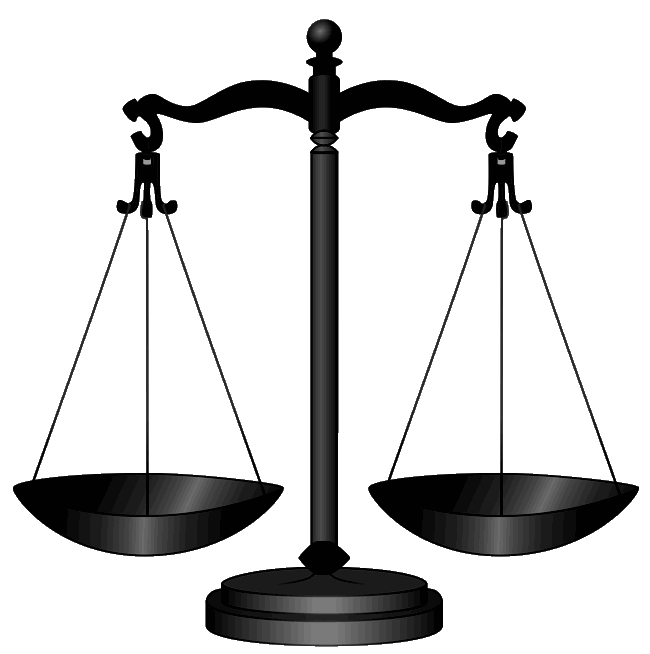|
NA-12 (Kohistan-cum-Lower Kohistan-cum-Kolai Palas Kohistan)
NA-12 (Kohistan-cum-Lower Kohistan-cum-Kolai Palas Kohistan) () is a constituency for the National Assembly of Pakistan. It covers the whole of districts of Kohistan, Lower Kohistan, and Kolai-Palas Kolai-Pallas District ( ps, کولئ پالس ولسوالۍ , ur, ضِلع کولئ پالس ) is a district in Hazara Division of Khyber Pakhtunkhwa province in Pakistan. It was a sub division of Kohistan district of Hazara division till it was .... The constituency was formerly known as NA-23 (Kohistan) from 1977 to 2018. The name changed to NA-11 (Kohistan) after the delimitation in 2018 and to NA-12 (Kohistan-cum-Lower Kohistan-cum-Kolai Palas Kohistan) after the delimitation in 2022. Members of Parliament 1977–2002: NA-23 (Kohistan) 2002–2018: NA-23 (Kohistan) Since 2018: NA-11 (Kohistan-cum-Lower Kohistan-cum-Kolai Palas Kohistan) Elections since 2002 2002 general election ''A total of 1,012 votes were rejected.'' 2008 general election ... [...More Info...] [...Related Items...] OR: [Wikipedia] [Google] [Baidu] |
National Assembly Of Pakistan
The National Assembly ( ur, , translit=Aiwān-e-Zairīñ, , or ur, قومی اسمبلی, Romanization, romanized: ''Qaumi Assembly'') is the lower house, lower legislative house of the bicameralism, bicameral Parliament of Pakistan, which also comprises the Senate of Pakistan (upper house). The National Assembly and the Senate both convene at Parliament House in Islamabad, the capital of Pakistan. The National Assembly is a democratically elected body consisting of a total of 342 members who are referred to as Members of the National Assembly (MNAs), of which 272 are directly elected members and 70 reserved seats for women and religious minorities from all over the country. A political party or a coalition must secure 172 seats to obtain and preserve a majority. Members are elected through the first-past-the-post system under universal adult suffrage, representing electoral districts known as National Assembly constituencies. According to the Constitution of Pakistan, constit ... [...More Info...] [...Related Items...] OR: [Wikipedia] [Google] [Baidu] |
Mutahida Deeni Mahaz
The Muttahida Majlis–e–Amal (MMA; Urdu: , "United Council of Action") is a political alliance consisting of conservative, Islamist, religious, and far-right parties of Pakistan. Naeem Siddiqui (the founder of Tehreek e Islami) proposed such an alliance of all the religious parties back in the 1990s. Qazi Hussain Ahmad endeavored for it and due to his efforts, it was formed in 2002 in a direct opposition to the policies led by President Pervez Musharraf to support for the War in Afghanistan. The alliance more densely consolidated its position during the nationwide general elections held in 2002. The JUI(F) led by its leader, the cleric Fazl-ur-Rahman, retained the most of the political momentum in the alliance, still some portion of the leadership comes from the JI. The MMA retained the provisional government of Khyber–Pakhtunkhwa and remained in alliance with PMLQ in Balochistan. Much public criticism and disapproval nonetheless grew against the alliance. Despite its ... [...More Info...] [...Related Items...] OR: [Wikipedia] [Google] [Baidu] |
Jamiat Ulema-e-Islam (F)
Jamiat Ulema-e-Islam Pakistan (Fazl) also Jamiat Ulema-e-Islam (F) or simply as Jamiat Ulema-e-Islam (Urdu: ; ; JUI-F) is a Deobandi Sunni political party in Pakistan. Established as the ''Jamiat Ulema-e-Islam'' in 1945, it is the result of a factional split in 1988, ''F'' standing for the name of its leader, Fazal-ur-Rehman. It is almost entirely based in southern Khyber Pakhtunkhwa and northern Balochistan, which are mostly inhabited by Pashtuns. The JUI-S faction, led by Samiul Haq, is of regional significance in Khyber Pakhtunkhwa but has no representation on the national level. The split of JUI into two factions was due to dissent over the policy of Pakistani president Zia-ul-Haq of supporting Mujahideen outfits in the Afghanistan war during the 1980s. One of its faction, Jamiat Ulama-e-Islam Nazryati (JUI-N), split in 2007 and merged back into JUI-F in 2016. On 29 December 2020, Jamiat Ulema-e-Islam Pakistan (JUI-P) split as a separate political party under the le ... [...More Info...] [...Related Items...] OR: [Wikipedia] [Google] [Baidu] |
Flag Of The Jamiat Ulema-e Islam
A flag is a piece of fabric (most often rectangular or quadrilateral) with a distinctive design and colours. It is used as a symbol, a signalling device, or for decoration. The term ''flag'' is also used to refer to the graphic design employed, and flags have evolved into a general tool for rudimentary signalling and identification, especially in environments where communication is challenging (such as the maritime environment, where semaphore is used). Many flags fall into groups of similar designs called flag families. The study of flags is known as "vexillology" from the Latin , meaning "flag" or "banner". National flags are patriotic symbols with widely varied interpretations that often include strong military associations because of their original and ongoing use for that purpose. Flags are also used in messaging, advertising, or for decorative purposes. Some military units are called "flags" after their use of flags. A ''flag'' (Arabic: ) is equivalent to a brigad ... [...More Info...] [...Related Items...] OR: [Wikipedia] [Google] [Baidu] |
Pakistan Muslim League (N)
The Pakistan Muslim League (Nawaz) ( ur, , translit=Pākistān Muslim Līg (Nūn) PML(N) or PML-N) is a Centre-right politics, centre-right and Liberal conservatism, liberal conservative political party in Pakistan. Alongside the Pakistan Tehreek-e-Insaf (PTI) and Pakistan Peoples Party (PPP), it is one of the three major political parties of the country. The party was founded by former Prime Minister of Pakistan, Prime Minister Nawaz Sharif after the dissolution of Islami Jamhoori Ittehad, Islamic Democratic Alliance in 1993. The Party platform, party's platform is generally Conservatism in Pakistan, conservative, which involves supporting free market capitalism, free markets, deregulation, Tax cut, lower taxes and privatisation, private ownership. Although the party historically supported social conservatism, in recent years, the party’s political ideology and platform has become more Liberal conservatism, liberal on social and cultural issues. One of Muslim League schisms ... [...More Info...] [...Related Items...] OR: [Wikipedia] [Google] [Baidu] |
Pakistan Muslim League
The Pakistan Muslim League ( ur, ; known as PML), is the name of several different Pakistani political parties that have dominated the right-wing platform in the country. The Muslim League (a different party) was the party of Pakistan’s founders. But it faced multiple fractures soon after the creation of Pakistan in 1947. It vanished in the 1970s. Its revival began in the mid-1980s and today several parties in Pakistan are named Muslim League. History First phase (1962–1969) The first "Pakistan" Muslim League was founded by President Ayub Khan in 1962 as a successor to the original Muslim League. Just a short period after its foundation, the party broke into two factions: Convention Muslim League that supported the President and the new Constitution, and the Council Muslim League, that opposed the new Constitution, denouncing it as undemocratic that made the Presidency an autocratic position. Following President Ayub's resignation, Nurul Amin, a right-wing political v ... [...More Info...] [...Related Items...] OR: [Wikipedia] [Google] [Baidu] |
Flag Of Pakistan People's Party
A flag is a piece of fabric (most often rectangular or quadrilateral) with a distinctive design and colours. It is used as a symbol, a signalling device, or for decoration. The term ''flag'' is also used to refer to the graphic design employed, and flags have evolved into a general tool for rudimentary signalling and identification, especially in environments where communication is challenging (such as the maritime environment, where semaphore is used). Many flags fall into groups of similar designs called flag families. The study of flags is known as "vexillology" from the Latin , meaning "flag" or "banner". National flags are patriotic symbols with widely varied interpretations that often include strong military associations because of their original and ongoing use for that purpose. Flags are also used in messaging, advertising, or for decorative purposes. Some military units are called "flags" after their use of flags. A ''flag'' (Arabic: ) is equivalent to a brigade i ... [...More Info...] [...Related Items...] OR: [Wikipedia] [Google] [Baidu] |
Pakistan Muslim League (Q)
The Pakistan Muslim League (Quaid e Azam Group) ur, ; ''Pākistān Muslim Līg (Qāf)'', Acronyms: PML(Q), PML-Q, PMLQ, "Q League") is a Conservative nationalist political party in Pakistan. As of the 2018 parliamentary election, it has a representation of 5 seats. It previously served as an ally of former Prime Minister Raja Pervez Ashraf's government, and led a joint election campaign in 2013 alongside Pakistan Peoples Party (PPP) in Punjab and Balochistan provinces against its rival Pakistan Muslim League (N), a fiscally conservative and centre-right force. Its leadership and members were once part of the Pakistan Muslim League (Nawaz) presided by former prime minister Nawaz Sharif. After the 1997 general elections, political differences arose that ultimately led to the creation of a faction inside the party. The dissidents, led by Shujaat Hussain, called for strong and vocal support for the 1999 military coup d'état staged and led by then- Chief of Army Staff and C ... [...More Info...] [...Related Items...] OR: [Wikipedia] [Google] [Baidu] |
Flag Of The Pakistan Muslim League (Q)
A flag is a piece of fabric (most often rectangular or quadrilateral) with a distinctive design and colours. It is used as a symbol, a signalling device, or for decoration. The term ''flag'' is also used to refer to the graphic design employed, and flags have evolved into a general tool for rudimentary signalling and identification, especially in environments where communication is challenging (such as the maritime environment, where semaphore is used). Many flags fall into groups of similar designs called flag families. The study of flags is known as "vexillology" from the Latin , meaning "flag" or "banner". National flags are patriotic symbols with widely varied interpretations that often include strong military associations because of their original and ongoing use for that purpose. Flags are also used in messaging, advertising, or for decorative purposes. Some military units are called "flags" after their use of flags. A ''flag'' (Arabic: ) is equivalent to a brigad ... [...More Info...] [...Related Items...] OR: [Wikipedia] [Google] [Baidu] |
Jamaat-e-Islami Pakistan Flag
Jamaat-e-Islami ( ur, ) () is an Islamic movement founded in 1941 in British India by the Islamic theologian and socio-political philosopher, Syed Abul Ala Maududi.van der Veer P. and Munshi S. (eds.''Media, War, and Terrorism: Responses from the Middle East and Asia''.Psychology Press, 2004, p. 138. . Along with the Muslim Brotherhood, founded in 1928, Jamaat-e-Islami was one of the original and most influential Islamist organisations, and the first of its kind to develop an ideology based on the modern revolutionary conception of Islam. This movement still has a significant legacy. The group split into separate independent organisations in India, Pakistan and Bangladesh following the Partition of India in 1947. Other groups related to or inspired by Jamaat-e-Islami developed in Kashmir, Britain, and Afghanistan (see below). The Jamaat-e-Islami parties maintain ties internationally with other Muslim groups. Haqqani, ''Pakistan: Between Mosque and Military'', 2010: p.171 Is ... [...More Info...] [...Related Items...] OR: [Wikipedia] [Google] [Baidu] |
2018 Pakistani General Election
General elections were held in Pakistan on Wednesday, 25 July 2018 to elect the members of 15th National Assembly and the four Provincial Assemblies. The three major parties Pakistan Tehreek-e-Insaf (PTI) led by Imran Khan, the Pakistan Muslim League led by Shehbaz Sharif and the Pakistan Peoples Party led by Bilawal Bhutto. The PTI won the most seats in the National Assembly but fell short of a majority; the party subsequently formed a coalition government with several smaller parties. At the provincial level, the PTI remained the largest party in Khyber Pakhtunkhwa (KP); the Pakistan Peoples Party (PPP) retained its dominance in Sindh and the newly formed Balochistan Awami Party (BAP) emerged as the largest party in Balochistan. In Punjab, the result was a hung parliament with the Pakistan Muslim League (N) (PML-N) winning the most seats. However, after several independents MPAs joined the PTI, the latter became the largest party and was able to form a government. Opinion ... [...More Info...] [...Related Items...] OR: [Wikipedia] [Google] [Baidu] |




.jpg)
